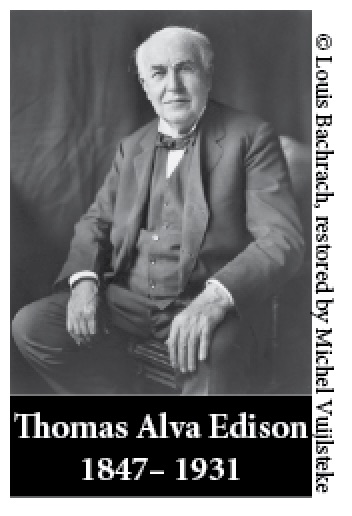
On February 11, 1847, Thomas Alva Edison was born in Milan Ohio, the seventh and last child of Samuel Edison Jr. and Nancy Elliot. When Thomas was 7 years old, the family moved to Port Huron, Michigan. By this time he had been in and out of several different schools in Ohio and Michigan on account of a reading disability that we know today as dyslexia. A few months into his first-grade school year, his teacher Reverend G. B. Engle, became frustrated by Edison’s learning difficulties and called him “addled.” The scorned youngster stormed out of school ending his formal education. Fortunately his mother was a teacher, so Thomas was home-schooled thereafter.
In the years that followed, the dyslexic youngster evolved into the consummate inventor. Deafness in one ear, resulting from scarlet fever in his early youth, led to his creation of the phonograph. News of his invention spread rapidly throughout the world, bringing him international fame and flocks of visitors, who traveled from afar, to witness a burgeoning new era in electronic devices. Less than two years later, Edison discovered the invention for which he is most remembered–the first commercially viable incandescent light bulb. The first air conditioning system, the motion picture camera, and a host of other life-enhancing innovations followed soon after and Thomas Edison, as the personification of inventive genius, became immortalized as the “Wizard of Menlo Park.”
Enamoured with his prolific inventiveness, the industrial world showered him with a wide variety of honors and awards, including his receipt of the American Congressional Gold Medal in 1928. On February 11, 1947 the US Post Office issued a commemorative stamp to celebrate the centenary of Edison’s birth, and in 1983, the United States Congress designated Edison’s birthday as National Inventor’s Day. Then in 1997, a special issue of Life Magazine placed Edison first in the list of the “100 Most Important People in the Last 1000 Years.”
In spite of all the adulation, the Wizard of Menlo Park never professed to have special intellectual powers, famously insisting, “Genius is 1% inspiration and 99% perspiration.”
